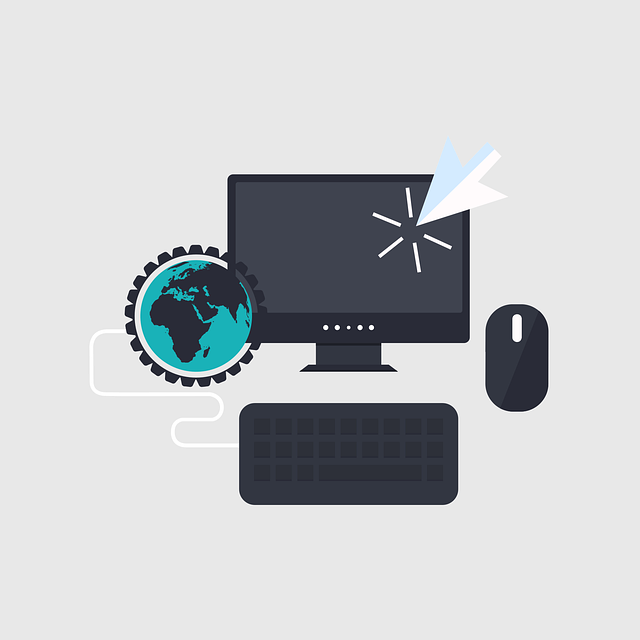AI transforms the automotive industry by enhancing efficiency and customer experiences, offering auto shops strategic advantages like predictive maintenance, efficient inventory management, and personalized service through AI-driven tools. Implementing AI productivity coaching can significantly boost profitability by automating tasks, improving scheduling, and analyzing data to optimize operations. Key steps include identifying areas for AI impact, choosing tailored solutions, preparing quality data, pilot testing, and employee training. This strategic approach ensures auto shops remain competitive and maximize return on investment in an evolving market.
In today’s digital era, Artificial Intelligence (AI) is revolutionizing the automotive industry, offering unprecedented opportunities for business transformation and profitability. This article guides auto businesses through implementing AI strategies tailored to their operations, focusing on enhancing efficiency and maximizing returns on investment. From understanding AI’s pivotal role in auto sector evolution to a comprehensive step-by-step guide for shop integration and long-term ROI maximization through AI productivity coaching, these insights are vital for staying ahead in the competitive market.
- Understanding AI's Role in Auto Business Transformation
- Implementing AI: Step-by-Step Guide for Auto Shops
- Maximizing ROI: AI Strategies for Long-Term Profitability
Understanding AI's Role in Auto Business Transformation

In today’s digital era, Artificial Intelligence (AI) is not just a buzzword but a powerful tool that can revolutionize the auto business landscape. Its role in transforming auto businesses is multifaceted, offering improved efficiency and enhanced customer experiences. AI productivity coaching specifically tailored for auto shops can significantly boost profitability by streamlining operations. For instance, AI-driven diagnostic tools can swiftly identify vehicle issues, reducing time spent on manual inspections.
Moreover, AI algorithms can analyze vast amounts of data to predict maintenance needs, optimize scheduling, and improve overall shop management. By automating repetitive tasks, AI frees up employees to focus on more complex work, increasing productivity and job satisfaction. This strategic implementation of AI not only modernizes auto businesses but also ensures they remain competitive in a rapidly evolving market, ultimately benefiting both businesses and their clients.
Implementing AI: Step-by-Step Guide for Auto Shops

Implementing AI in your auto shop can significantly boost productivity and profitability. Here’s a step-by-step guide to navigate this transformation:
1. Assess Your Needs: Start by understanding where AI could make the most impact. This could range from streamlining scheduling and inventory management to enhancing diagnostics and customer service through chatbots. Identify pain points in your current processes that AI can address.
2. Choose the Right Tools: Select AI solutions tailored for auto shops, focusing on features like vehicle maintenance predictions, automated reporting, or intelligent diagnostic tools. Consider platforms offering seamless integration with existing systems for a smooth transition. Ensure the chosen tools align with your assessed needs and budget.
3. Data Preparation: AI thrives on quality data. Clean and organize your shop’s data—from customer records to vehicle service histories—to feed into your selected AI models effectively. This step is crucial for accurate predictions and insights, directly impacting auto shop profitability coaching.
4. Pilot Testing: Before full-scale implementation, trial run the AI tools on a small scale. This allows your team to get hands-on experience, identify potential issues, and provide valuable feedback for optimizations. It also helps in setting realistic expectations about AI’s capabilities and limitations.
5. Staff Training: Educate your employees about the new AI systems. Ensure they understand how to use these tools effectively and recognize their benefits. Adequate training is key to fostering a smooth transition and maximizing AI productivity coaching for your auto shop.
Maximizing ROI: AI Strategies for Long-Term Profitability

In the ever-evolving automotive industry, maximizing return on investment (ROI) is a constant pursuit for business owners. AI implementation offers a strategic advantage by enhancing operational efficiency and improving long-term profitability. By integrating AI productivity coaching tools, auto shops can streamline processes such as inventory management, predictive maintenance, and customer service. These technologies enable data-driven decision-making, reducing waste and optimizing resource allocation.
For instance, AI algorithms can analyze historical data to predict equipment failures, minimizing costly unexpected downtime. Automated scheduling systems can optimize labor utilization while smart inventory management ensures parts are stocked efficiently, reducing holding costs. Moreover, AI-powered customer engagement platforms can personalize interactions, fostering loyalty and increasing sales opportunities. These strategies not only maximize ROI but also lay the foundation for sustainable auto shop profitability in a competitive market.
AI is no longer a futuristic concept but a tangible tool that can revolutionize auto businesses. By understanding its role, implementing strategic steps, and focusing on maximizing ROI, auto shops can enhance their operations and drive long-term profitability. AI productivity coaching specifically tailored for these businesses offers a roadmap to success, enabling them to stay competitive in an ever-evolving market. It’s time to embrace AI integration and witness the transformative power it holds for the automotive industry.
